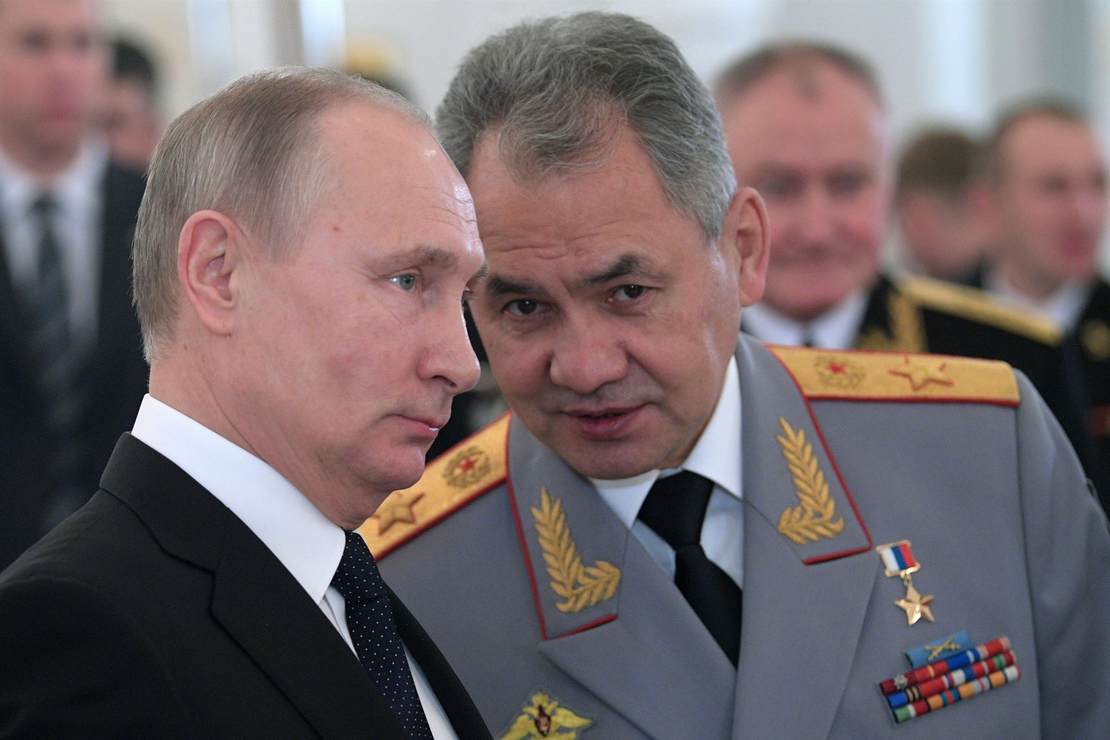
A curious development — positive, but still curious. Ever since the start of the Russian invasion of Ukraine, Defense Secretary has tried to get Sergei Shoigu to pick up the phone, at least for the purposes of deconfliction. The Russian defense minister has refused to engage … until today.
Defense Secretary Lloyd Austin on Friday spoke with his Russian counterpart, the first such conversation between the two officials since the Kremlin’s attack on Ukraine began in February, according to the Pentagon.
Austin spoke with Russian Minister of Defense Sergey Shoygu by phone, where the Pentagon chief “urged an immediate ceasefire in Ukraine and emphasized the importance of maintaining lines of communication,” the Defense Department said in a statement.
A senior defense official later told reporters that the call was initiated by Austin and lasted about an hour, with the tone characterized as “professional.”
It’s the first contact between the two since February 18, almost exactly three months ago. Six days later, Russia invaded Ukraine in its so-called “special military operation” that it expected to wrap up within a week. Three months later, their military has gotten humiliated in every part of Ukraine and is now at risk of getting flanked in the area where their lines of communication should be strongest. Finland is days away from putting NATO forces within 150 miles of its strategic sub port of Murmansk and less than 100 miles from St. Petersburg. Russia’s economy is in a shambles, and the nuclear threats don’t appear to be rattling NATO’s determination to supply Ukraine enough weapons to kick the Russians out for good.
Under these circumstances, Shoigu might be looking for some good advice, and Austin at least gave his Russian counterpart something to think about:
READ RELATED: Kamala finally hires a new press secretary, fills vacancy left by Symone Sanders
On May 13, Secretary of Defense Lloyd J. Austin III spoke with Russian Minister of Defense Sergey Shoygu for the first time since February 18. Secretary Austin urged an immediate ceasefire in Ukraine and emphasized the importance of maintaining lines of communication.
A cease-fire would at least stop the bleeding on the Russian side of the ledger. Don’t expect Vladimir Putin to take Austin’s advice, but it would still be better than letting the Ukrainians chew up Russian forces in the Donbas. That may not yet be inevitable, but it’s certainly looking that way as Russia falls back from Kharkiv.
But if that’s not what Russians want to hear, why reach out at all? The only reason at the moment might be for some specific deconfliction purpose, which could be related more to the Syria-Iraq theater where both countries have forces. That seems like a stretch, however, especially given recent Russian threats relating to Finland’s decision to join NATO. It could be that Shoigu wants Austin and the US to prevent that humiliating expansion to a much more strategic Russian border than the Russo-Ukraine frontier would have been.
If we really want to play the rank-speculation game, let’s recall that Putin appears to be in poor health these days and is rumored to be about to go into surgery. Shoigu may want to reconnect to make sure that neither side does anything ill-advised out of bad assumptions while Putin’s out of commission, which would be a very wise move. It could also be that Shoigu wants to feel out the US attitudes at the moment if Putin suddenly reaches room temperature, whether in surgery or not.
Otherwise, this decision to reconnect to the US seems like a tacit admission that the whole “special military operation” has gone sideways so badly that Russia can’t easily extricate itself now. The Putin regime can’t bluff or bully the West, and the spectacularly inept and incompetent Russian military may not even provide mucjh of a deterrent any longer, as least not a conventional deterrent. On that point too, having watched the Ukrainians kick his “modernized” military around for three months, how much confidence would Putin have in his unconventional forces?
The Russians may not be ready to call off the invasion, but the desire to start engaging again gives the appearance that they’re no longer buying their own propaganda.
Source:





